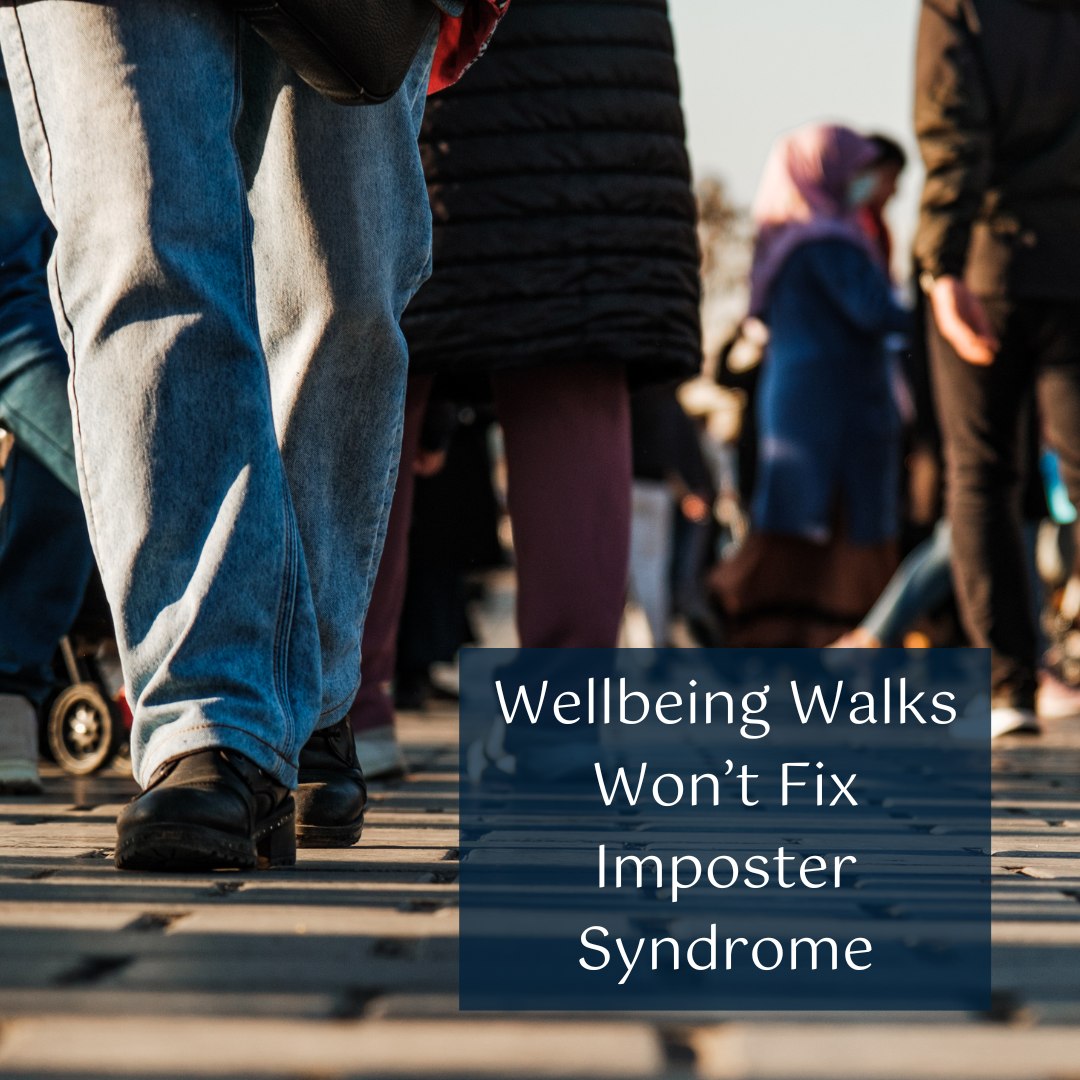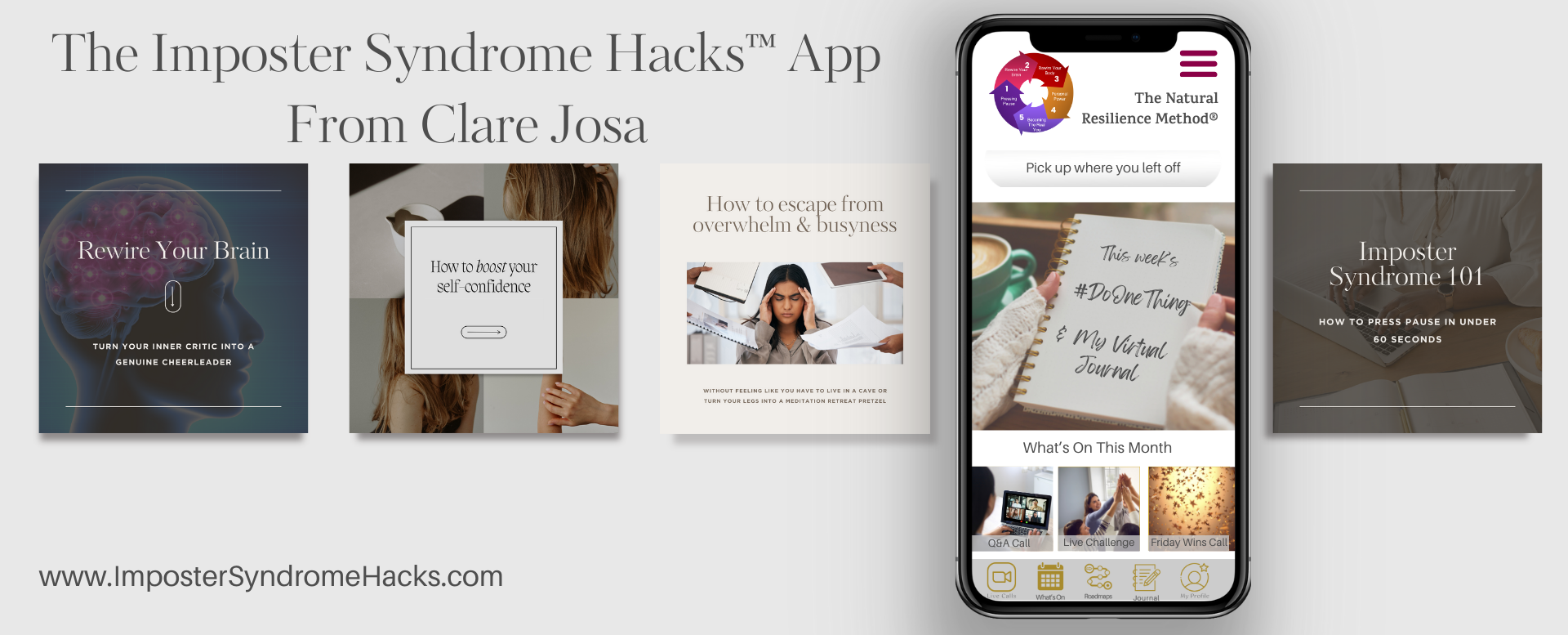Staff performance: how can you spot which of your team members might be struggling with Imposter Syndrome, to an extent that is harming their performance, and prevent it?
The 2024 Imposter Syndrome Research Study (white paper here) found that 62%, nearly two thirds, of people are struggling with Imposter Syndrome daily or regularly, to an extent that is harming their performance. And for 34% the effect is 'severe', based on their actions, thoughts and emotions, from the study.
Imposter Syndrome's impact is 'severe'
Write their success off as fluke, luck or a team effort
Don't feel confident speaking up with their ideas
Source © Clare Josa 2024 Imposter Syndrome Research Study
It's so frustrating when you can see someone's potential, but you can't figure out how to get them to see it, let alone how to get them at perform at that level.
You watch them writing their success off as fluke, luck, timing or a team effort - a classic Imposter Syndrome warning sign (52% say they do this regularly).
You know they're turning down opportunities to shine - another Imposter Syndrome sign (54% turned down the offer of an opportunity they'd have secretly loved in the past year).
So you try giving feedback and performance appraisals, but this just make it worse: the research study found that even positive feedback causes anxiety for those with Imposter Syndrome. 73% waited for the 'but' and 44% volunteered self-criticism out loud, in response to praise.
Add to this the fact that only 11% feel fully confident in speaking up with their ideas, and it can feel impossible to help people to 'own' their success and perform at the level that you need them to - and know they can.

And for one in ten of them, Imposter Syndrome is so severe that it's causing them to think about quitting their job today. Someone in that state of mind is going to really struggle to perform well.
For the 53% who doubt themselves and lack confidence in their abilities, even for the things they know they can do well, what can you do to support them?
No amount of beanbags in meeting rooms, mindfulness apps, wellbeing walks or lunch-n-learn sessions is going to fix Imposter Syndrome, or prevent its negative performance impact, on individuals and your organisation.
You need to move beyond guesswork and trial-and-error, to implement solutions that address the root causes, not just the symptoms.
So what can you do?
Performance issues are a hidden cost of Imposter Syndrome.
Yet the vast majority of businesses are ignoring Imposter Syndrome, despite knowing it's the elephant in the room, when it comes to performance, productivity, wellbeing, and retention.
Most assume there's nothing they can do, or that it has always been this way.
But neither of those is true.
The number of your team members experiencing Imposter Syndrome daily or regularly, since the pandemic, to an extent that's impacting their performance, productivity and wellbeing, is up by one fifth.
That means the harm it is causing your organisation is rising, too.
This needs to become an unignorable business priority.
And while we're here, let's start by addressing the single biggest myth around Imposter Syndrome and performance - chances are you've heard it, or perhaps even used it yourself:
But I Need Imposter Syndrome To Perform!
What can you do about Imposter Syndrome's role in individual and team performance?
Spot the signs. Stop the cycle.
Create lasting change.
There are seven core reasons why Imposter Syndrome will harm someone's performance.
Here's how to spot the signs that Imposter Syndrome might be negatively impacting people's ability to do their job and to fulfil their potential, without over-working and experiencing potentially crippling anxiety:
Reduced performance harms individuals, teams, wider organisations and clients. And people 'pushing on through the fear' caused by Imposter Syndrome, in an attempt to compensate for the performance-hit, can lead to Imposter Syndrome-burnout, and even quitting.
But people try so hard to hide Imposter Syndrome that it's hard to know who needs help.
How Can You Prevent Imposter Syndrome From Harming People's Performance?
It's essential to look at all three amplifiers of Imposter Syndrome - the culture, the working environment, and people's personal habits. They all play a role in how much Imposter Syndrome affects performance.
How can you do this?
Measure The Problem
How big is it?
Which key factors are driving it?
How much of it is down to individuals' habits, versus company culture or the working environment?
What are your quick wins vs strategic solutions?
How can you measure the ROI of any changes you make?
Prioritise Urgent Support
Who in your teams needs urgent support? Could you find them proven training or external certified Imposter Syndrome coaches?
How can you help them to self-identify, semi-anonymously, to avoid the embarrassment of having to ask their line manager? (Who will often be part of the cause)
Train Your Managers
With nearly two thirds of your team members struggling with Imposter Syndrome daily or regularly, all people leaders need training in how to spot this, and how to safely support people at the early intervention stage, without making things worse. In addition, managers need training in Imposter Syndrome-informed feedback and appraisals.
Clear Management Imposter Syndrome
Managers need to clear their own Imposter Syndrome first, if they're struggling with it, or it can be triggering and risk them keeping their team members stuck in coping strategies. That further harms team performance. Also, toxic managers are almost always driven by maladaptive Imposter Syndrome coping strategies and anxiety.
Train In-House Coaches
Don't want to be tied into expensive external coaches?
By training in-house experts in tools that help people to clear and prevent Imposter Syndrome, you can create high-impact performance improvements.
With the right support, it only takes 4-6 sessions to take Imposter Syndrome severity from 80% to 20%.
Make It Scalable
Not everyone needs 1:1 coaching, so make this work scalable by bringing in an app that is specially designed to support people in ditching Imposter Syndrome, in just 5 minutes a day.
Use the initial research study to identify who would most benefit from this.
Plus: Measure the results you're getting.
You can complete this process by using the initial research-backed assessment tool to check in again with your teams, putting data behind the transformations you've been creating.

Surely this is really expensive?
You could fully support a team of 500 for less than the cost of one missed opportunity, in a fast-growing, competitive business environment. And 32% of your team members struggle with speaking up with their ideas, or saying if they think the organisation is making a mistake, at a level that could be considered 'severe'.
Putting up with Imposter Syndrome is the expensive bit.
All of this is already waiting for you, and we can help you to start implementing these breakthrough actions in reducing Imposter Syndrome's impact on performance, in the next few weeks.
You'll be seeing results you can measure, in months, not years.
Here's how we can work together. Which of these better describes you?
I'm Looking For Potential Solutions For My Organisation
If you're looking for a solution that's tailored to your organisation's needs, then let's talk.
You can book a no-obligation call with Clare Josa by completing a short questionnaire, which then takes you to her online diary, so you could get that called booked in now.
I Just Want Training For Myself
If you're looking to add science-backed, proven Imposter Syndrome strategies to your coaching toolkit, whether you're a line manager, HR professional, coach or consultant, Clare has certification programmes at two levels:
Imposter Syndrome Practitioner™
Imposter Syndrome Master Coach™
What's The Next Step - For Your Organisation?

Get a personalised action plan
Answer 20 short questions and we'll send you a personalised action plan, with tailored suggestions for next steps.
Plus when you have answered the questions, you'll get a link to Clare's diary, to book a call to explore the scalable solutions that would be the best fit for your team.


